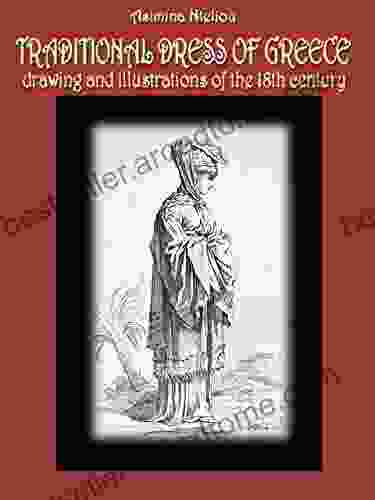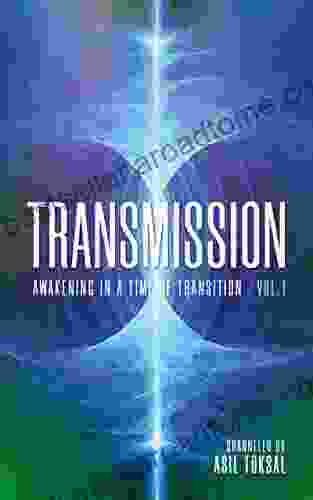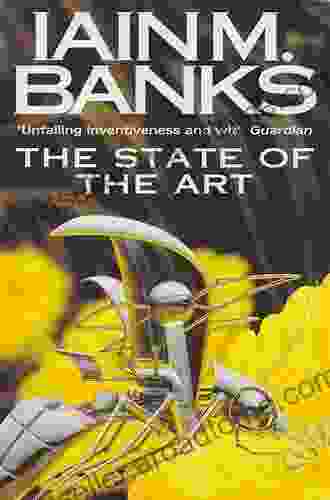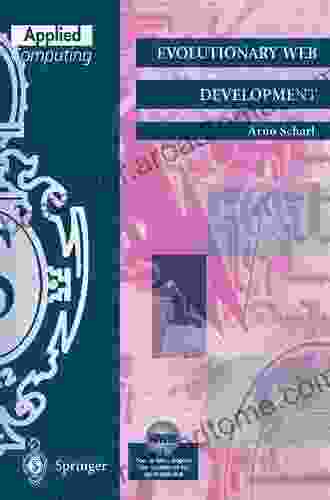The Revisionist Revolution in Vygotsky Studies: A New Era of Understanding Child Development

Lev Vygotsky, a pioneering Russian psychologist, revolutionized the field of child development with his sociocultural theory. However, for decades, his work has been interpreted through a traditional lens that has limited our understanding of his ideas. In recent years, a new wave of scholarship, known as the revisionist revolution, has emerged, challenging these traditional interpretations and offering a more nuanced and accurate understanding of Vygotsky's work.
5 out of 5
| Language | : | English |
| File size | : | 2596 KB |
| Text-to-Speech | : | Enabled |
| Screen Reader | : | Supported |
| Enhanced typesetting | : | Enabled |
| Print length | : | 334 pages |
Revisionist scholars argue that traditional interpretations of Vygotsky have overemphasized the role of language and mediation in development. They contend that Vygotsky's theory is more complex and multifaceted, and that it places equal importance on the role of social interaction, cultural context, and the child's own activity in development.
One of the key tenets of the revisionist approach is the idea of "distributed cognition." This concept challenges the traditional view that cognition is an individual process that takes place within the mind. Revisionists argue that cognition is often distributed across people, artifacts, and the environment. This means that children learn and develop not only through their interactions with others, but also through their interactions with the world around them.
Another key tenet of the revisionist approach is the idea of "dialogic learning." This concept emphasizes the importance of social interaction in learning. Revisionists argue that children learn best through dialogue with others, in which they share ideas, negotiate meanings, and construct new knowledge. This type of learning is not limited to formal educational settings, but can occur in any context where children are engaged in social interaction.
The revisionist revolution in Vygotsky studies has important implications for research and practice in child development. By challenging traditional interpretations of Vygotsky's work, revisionists have opened up new avenues of research that explore the complex and multifaceted nature of child development. This research has the potential to transform our understanding of how children learn and develop, and to inform the development of more effective educational and intervention programs.
In addition to its implications for research, the revisionist revolution has also had a significant impact on practice in child development. Revisionist ideas have been used to develop new educational approaches that emphasize the importance of social interaction, collaboration, and dialogue in learning. These approaches have been shown to be effective in promoting children's learning and development, and they are being adopted by schools and other educational settings around the world.
The revisionist revolution in Vygotsky studies is a transformative force in the field of child development. By challenging traditional interpretations of Vygotsky's work, revisionists have opened up new avenues of research and practice, and they have helped us to gain a deeper understanding of how children learn and develop. The revisionist revolution is still in its early stages, but it has the potential to profoundly impact the field of child development for years to come.
Key Tenets of the Revisionist Approach
- Distributed cognition: Cognition is often distributed across people, artifacts, and the environment.
- Dialogic learning: Children learn best through dialogue with others, in which they share ideas, negotiate meanings, and construct new knowledge.
- The importance of social interaction and cultural context: Development is not solely a matter of individual cognitive processes, but is also shaped by social interaction and cultural context.
- The role of the child's own activity: Children are not passive recipients of knowledge, but actively construct their own understanding of the world through their interactions with others and their environment.
Implications for Research and Practice
The revisionist revolution in Vygotsky studies has important implications for research and practice in child development. By challenging traditional interpretations of Vygotsky's work, revisionists have opened up new avenues of research that explore the complex and multifaceted nature of child development. This research has the potential to transform our understanding of how children learn and develop, and to inform the development of more effective educational and intervention programs.
In addition to its implications for research, the revisionist revolution has also had a significant impact on practice in child development. Revisionist ideas have been used to develop new educational approaches that emphasize the importance of social interaction, collaboration, and dialogue in learning. These approaches have been shown to be effective in promoting children's learning and development, and they are being adopted by schools and other educational settings around the world.
The revisionist revolution in Vygotsky studies is a transformative force in the field of child development. By challenging traditional interpretations of Vygotsky's work, revisionists have opened up new avenues of research and practice, and they have helped us to gain a deeper understanding of how children learn and develop. The revisionist revolution is still in its early stages, but it has the potential to profoundly impact the field of child development for years to come.
To learn more about the revisionist revolution in Vygotsky studies, I encourage you to read the following resources:
- The Revisionist Revolution in Vygotsky Studies: A Critical Examination by Michael Cole
- Rethinking Vygotsky: The Revisionist Revolution by James Wertsch
- The Revisionist Turn in Vygotskian Studies by Luis C. Moll and Carla C. Laguardia
5 out of 5
| Language | : | English |
| File size | : | 2596 KB |
| Text-to-Speech | : | Enabled |
| Screen Reader | : | Supported |
| Enhanced typesetting | : | Enabled |
| Print length | : | 334 pages |
Do you want to contribute by writing guest posts on this blog?
Please contact us and send us a resume of previous articles that you have written.
 Book
Book Novel
Novel Page
Page Chapter
Chapter Text
Text Story
Story Genre
Genre Reader
Reader Library
Library Paperback
Paperback E-book
E-book Magazine
Magazine Newspaper
Newspaper Paragraph
Paragraph Sentence
Sentence Bookmark
Bookmark Shelf
Shelf Glossary
Glossary Bibliography
Bibliography Foreword
Foreword Preface
Preface Synopsis
Synopsis Annotation
Annotation Footnote
Footnote Manuscript
Manuscript Scroll
Scroll Codex
Codex Tome
Tome Bestseller
Bestseller Classics
Classics Library card
Library card Narrative
Narrative Biography
Biography Autobiography
Autobiography Memoir
Memoir Reference
Reference Encyclopedia
Encyclopedia Artemis Caro
Artemis Caro John J Albers
John J Albers Tad Burness
Tad Burness Ann Sloan Devlin
Ann Sloan Devlin Leonard H Friedman
Leonard H Friedman Arin Shawkat Salamah Qudsi
Arin Shawkat Salamah Qudsi S Joseph Krempa
S Joseph Krempa Suzanne Cron Heuertz
Suzanne Cron Heuertz Hassan Fathy
Hassan Fathy Anthony Feinstein
Anthony Feinstein Fatti Burke
Fatti Burke Annie West
Annie West David Schimmel
David Schimmel Arlette Jones Lawson
Arlette Jones Lawson Arnold S Berger
Arnold S Berger Ashley Bryan
Ashley Bryan Claire Goodale
Claire Goodale Arthur Braverman
Arthur Braverman Lily Williams
Lily Williams Annabelle Lee
Annabelle Lee
Light bulbAdvertise smarter! Our strategic ad space ensures maximum exposure. Reserve your spot today!

 Chinua AchebeTrue Story Of Murder, Racketeering, and Drug Trafficking: Unveiling the Dark...
Chinua AchebeTrue Story Of Murder, Racketeering, and Drug Trafficking: Unveiling the Dark...
 Edward BellMore Spirit Communications From Monsignor Robert Hugh Benson: Unlocking the...
Edward BellMore Spirit Communications From Monsignor Robert Hugh Benson: Unlocking the... Patrick HayesFollow ·13.4k
Patrick HayesFollow ·13.4k Jermaine PowellFollow ·13.4k
Jermaine PowellFollow ·13.4k Franklin BellFollow ·19.8k
Franklin BellFollow ·19.8k Shawn ReedFollow ·14.6k
Shawn ReedFollow ·14.6k Jay SimmonsFollow ·10.8k
Jay SimmonsFollow ·10.8k T.S. EliotFollow ·8.3k
T.S. EliotFollow ·8.3k Jorge AmadoFollow ·3.7k
Jorge AmadoFollow ·3.7k Yasunari KawabataFollow ·13.7k
Yasunari KawabataFollow ·13.7k

 Jeremy Cook
Jeremy CookDrawing and Illustrations of the 18th Century: A Journey...
Step into the...

 Easton Powell
Easton PowellPhysician Experience With Obstructive Sleep Apnea: The...
Obstructive sleep apnea (OSA) is a common...

 Cruz Simmons
Cruz SimmonsUnlock Your Inner Healer: The Transformative Power of...
Are you ready to embark on a profound healing...

 Paulo Coelho
Paulo CoelhoTransmission Awakening In Time Of Transition Vol. 1: A...
Transmission Awakening...
5 out of 5
| Language | : | English |
| File size | : | 2596 KB |
| Text-to-Speech | : | Enabled |
| Screen Reader | : | Supported |
| Enhanced typesetting | : | Enabled |
| Print length | : | 334 pages |












